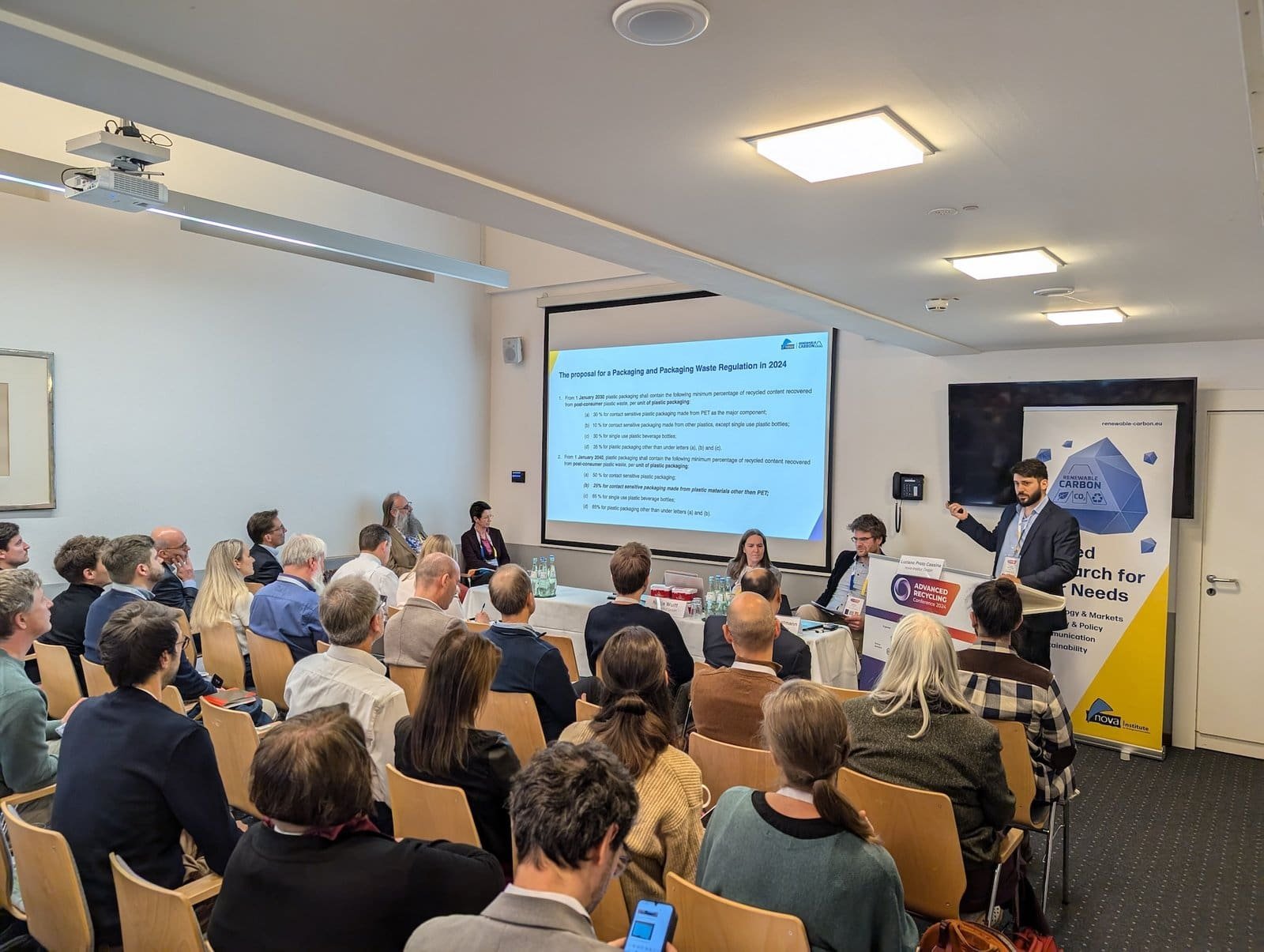The premier advanced recycling conference in Europe, the Advanced Recycling Conference (ARC), took place in Cologne from November 20–21, 2024, with around 270 delegates.
Hürth, November 2024: At the Advanced Recycling Conference 2024, which took place in Cologne and virtually on November 20–21, speakers from top businesses and academic institutions discussed the present and potential future of advanced recycling technologies, such as pyrolysis, gasification, depolymerization, and the new star, dissolution. Attendees gave the conference excellent reviews, praising the wide range of detailed, excellent material that was offered. Many emphasized the priceless networking opportunities, which they said were essential in a sector that was changing quickly. Many attendees commented that the event had surpassed their expectations.
From dissolution to multi-faceted strategies
Dissolution was examined in relation to various materials, including ABS and PC (e.g., Trinseo, Netherlands, and ReSolved Technologies, Netherlands), PE and PP (e.g., PureCycle, Belgium, and Reventas, UK), PS (e.g., Polystyvert, Canada), and PVC (e.g., INEOS Inovyn, Belgium). Dissolution is acknowledged as a promising solution for advanced recycling. These technologies provide recycling paths that are more energy-efficient and shorter.
But a crucial lesson emerged from the panel talks and audience interactions: no one technology can address every issue. To satisfy the various demands of advanced recycling, a multifaceted strategy is still necessary.
Industry professionals are investigating cutting-edge recycling technology to handle complex waste streams as plastic trash continues to pose a threat to the sustainability of the global environment. Outi Teräs from Neste (Finland) emphasized in her presentation the necessity of chemical and physical recycling to handle all plastic waste streams that are not amenable to mechanical recycling.
The challenges involved in mechanical recycling
PET mechanical recycling, which is well-established throughout Europe, especially in Germany, thanks to programs like the bottle deposit program, was brought to light at the Advanced Recycling Conference. Despite its effectiveness, this approach has major drawbacks when handling complicated waste streams like textiles and mixed plastics. From a process standpoint, these materials are extremely difficult to mechanically recycle, and the recycled material is not appropriate for applications that need contact.
Advanced depolymerization technologies have been emphasized as viable remedies in light of these constraints. Significant promise exists for handling complicated PET waste streams through innovations based on solvolysis (DePoly in Switzerland), solid-state hydrolysis (Matterr in Germany), and enzymolysis (the EU WhiteCycle project and Plasticentropy in France). These methods are excellent at dissolving PET into its constituent monomers, which makes it possible to produce recycled PET of virgin grade.
These cutting-edge techniques are thought to be the best options for fulfilling required recycled PET content targets, providing a means of enhancing recycling rates and quality in situations where conventional techniques are insufficient.
Pyrolysis as an important recycling route
Even though it takes longer and uses more energy than dissolution techniques, pyrolysis has become a significant recycling method for waste polyethylene (PE) and polypropylene (PP), especially when it comes to producing virgin-quality recycled polymers that are appropriate for contact-sensitive applications. It is a crucial addition to mechanical recycling because of its capacity to manage a variety of waste streams and generate high-quality outputs.
The partnership between the Austrian businesses Borealis and OMV is a noteworthy illustration of an integrated business model that combines mechanical recycling and pyrolysis. Plans are in place to build a commercial-scale facility with a capacity of 200,000 tonnes annually by 2028, and OMV’s new demonstration plant with a capacity of 16,000 tonnes annually has just begun operations.
Pyrolysis and other thermochemical methods are being further optimized by recent developments, with an emphasis on enhancing resilience, yields, energy efficiency, product quality, and economic performance. For instance, AES Autonome Energiesysteme (Germany) is facilitating greater usage by increasing accessibility through small-scale pyrolysis facilities. Aduro Clean Technologies (Canada) seeks to provide higher-quality outputs without the need for hydrotreatment, greatly reducing the recycling process route, whereas Mura Technology (UK) has created a technique that is resistant to organic contaminants, doing away with the necessity for pre-drying.
These developments show how pyrolysis is increasingly being used to handle intricate plastic waste streams and advance the circular economy.
The future of advanced recycling in Europe
Advanced recycling presents a strong chance to defossilise the chemical and plastics sectors in Europe and draw in much-needed investment during this difficult economic time. In the “Markets, Investment and Financing” session, specialists looked at Europe’s role in this change. They emphasized that although European businesses could find it difficult to compete with China in the manufacture of virgin polymers, a strategic move toward improved recycling might give them a competitive edge. Europe may become a leader in sustainable innovation and promote resilience and economic growth in the industry by utilizing imported plastic trash as a feedstock for a new, circular chemical industry.
Experts emphasized the significance of supporting regional solutions in light of the difficulties posed by supply chain vulnerabilities and pressures from the global market. Gerben Hieminga of ING Group N.V. (the Netherlands) emphasized in his presentation that creating more regional value chains may be a useful way to lessen reliance on and pressure from global markets.
The substantial profits the Commission obtains from the tax on non-recycled plastics—which is controlled differently in each Member State and is far greater than the additional costs of recycled plastics—were brought to light by Marc Spekreijse of Circular Plastics (The Netherlands).
Europe has the most well-established garbage collection infrastructure and has led the way in technological advancements in sophisticated recycling to date. By using less virgin fossil resources, recycling more, and keeping carbon in the cycle, Europe may draw in fresh investment and promote defossilization with robust recycling policies and demand creation.
The event’s sponsors, DePoly, EREMA Group, Starlinger, and Buss ChemTech, generously supported it, demonstrating their dedication to developing environmentally friendly recycling technology.
Early December will see the opening of registration for the Advanced Recycling Conference 2025, which will take place in Cologne, Germany, from November 19–20: https://advanced-recycling.eu/registration/


